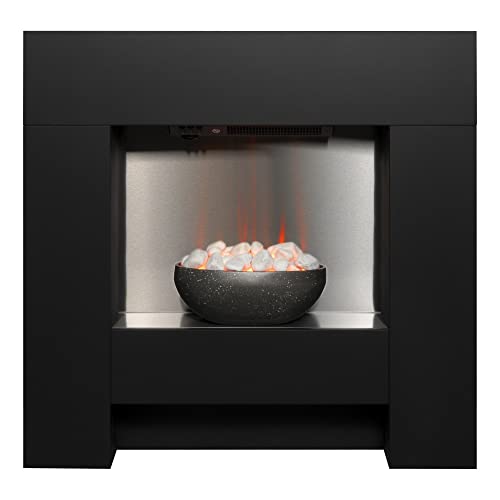The Best Fireplaces: A Comprehensive Guide for Homeowners
Fireplaces have long been a precious function in homes, offering both heat and an inviting atmosphere. They are available in different styles, sizes, and fuel types, permitting homeowners to pick one that fits their personal aesthetic and heating needs. This article delves into the best fireplaces, highlighting key features and factors to consider to assist you make an informed decision.
Kinds of Fireplaces
Comprehending the different types of fireplaces is vital in selecting the very best alternative for your home. Below are the most typically used fireplaces:
Wood-Burning Fireplaces
- Benefits: Traditional appeal, natural ambiance, and reliable heating.
- Drawbacks: Requires routine upkeep, ash disposal, and goes through local policies relating to emissions.
Gas Fireplaces
- Benefits: Convenient, clean-burning, and simple to run.
- Disadvantages: Requires a gas line, can be more expensive to install initially.
Electric Fireplaces
- Advantages: Easy setup, low maintenance, and the best option for homes with kids or pets.
- Downsides: Lack the authentic feel of wood or gas flames, might not heat large areas successfully.
Pellet Stoves
- Advantages: Eco-friendly, effective, and provide a constant heat output.
- Disadvantages: Requires electrical power to run, and pellet supply can be restricted in some locations.
Ethanol Fireplaces
- Advantages: No chimney needed, portable, and eco-friendly.
- Downsides: Generally less effective for heating.
A Comparison of Fireplace Types
| Type | Installation Cost | Running Cost | Heat Output | Upkeep | Environmental Impact |
|---|---|---|---|---|---|
| Wood-Burning | ₤ ₤ | ₤ | High | High | Moderate |
| Gas | ₤ ₤ ₤ | ₤ ₤ | Medium-High | Low | Moderate |
| Electric | ₤ | ₤ ₤ | Low | Extremely Low | Low |
| Pellet | ₤ ₤ | ₤ | Medium | Medium | Low |
| Ethanol | ₤ ₤ | ₤ ₤ ₤ | Low | Very Low | Really Low |
Top Considerations When Choosing a Fireplace
When you're in the marketplace for a brand-new fireplace, keep the following consider mind to guarantee you choose the best one for your home:
- Purpose and Functionality: What do you desire your fireplace to do? Is it for heating or aesthetics? This will assist your option substantially.
- Area Availability: Measure the location where you wish to set up the fireplace. Ensure the chosen type fits without overwhelming the space.
- Fuel Source: Assess the availability and cost of various fuel sources in your location to avoid unforeseen expenditures.
- Installation Complexity: Some fireplaces may need significant changes to your existing home structure.
- Building Regulations and Regulations: Be mindful of regional laws concerning ventilation, security, and emissions, as these can affect your fireplace option.
- Visual Appeal: The style and style of a fireplace can function as a centerpiece or complement the existing decor, so pick one that improves your home's total visual.
Benefits of a Fireplace
Including a fireplace to your home affords numerous benefits:
- Enhanced Aesthetic Appeal: A fireplace can elevate the design of any space, producing a cozy and welcoming atmosphere.
- Increased Home Value: A well-installed fireplace can include considerable worth to your home, making it appealing to potential buyers.
- Energy Efficiency: Modern fireplaces, especially gas and pellet ranges, can supply effective heating while lowering energy expenses.
- Emergency Heat Source: In cases of power failures, a wood or gas fireplace can work as a dependable heat source.
- Celebration Space: Fireplaces typically end up being the focal point for events, promoting warmth and comfort throughout household or good friends' get-togethers.
Often Asked Questions (FAQs)
Q: How much does it cost to set up a fireplace?A: Installation expenses can differ substantially based on the kind of fireplace, structural requirements, and labor costs. Fundamental electric fireplaces might cost around ₤ 300, while customized wood or gas fireplaces can range from ₤ 3,000 to upwards of ₤ 10,000. Q: Are electric fireplaces safe?A: Yes, electric
fireplaces are typically safe.
They do not give off carbon monoxide gas and have no open flames. They typically include security functions like automatic shut-off systems. Q: How often ought to I have my chimney cleaned?A: If you utilize a wood-burning fireplace, it's advised to have your chimney cleaned at least when a year
to prevent creosote accumulation, which can lead to chimney fires. Fireplaces And Stoves : Can I install a gas fireplace myself?A: It's not recommended to set up a gas fireplace without expert assistance due to the intricacies associated with gas
lines, ventilation, and security policies. Q: What are the very best types of fuel for wood-burning fireplaces?A: The best fuel options include well-seasoned woods like oak, maple, or hickory, as they burn hotter and cleaner compared to softwoods. Selecting the very best fireplace for your home
involves thinking about numerous factors, from aesthetic appeals to operate and security. Each type of fireplace has its special benefits and potential disadvantages.
Comprehending these elements, in addition to your individual heating requirements and budget restraints, will guide you in making an informed choice. Eventually, a fireplace can supply not only heat however likewise an abundant ambiance, transforming your home into an inviting sanctuary.

